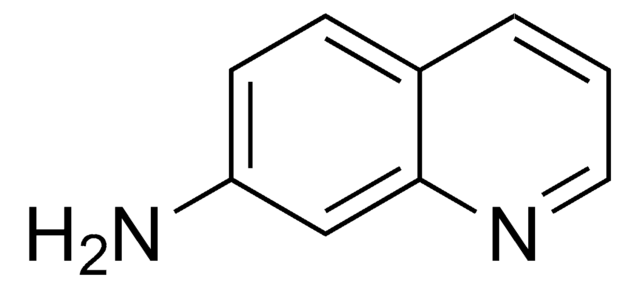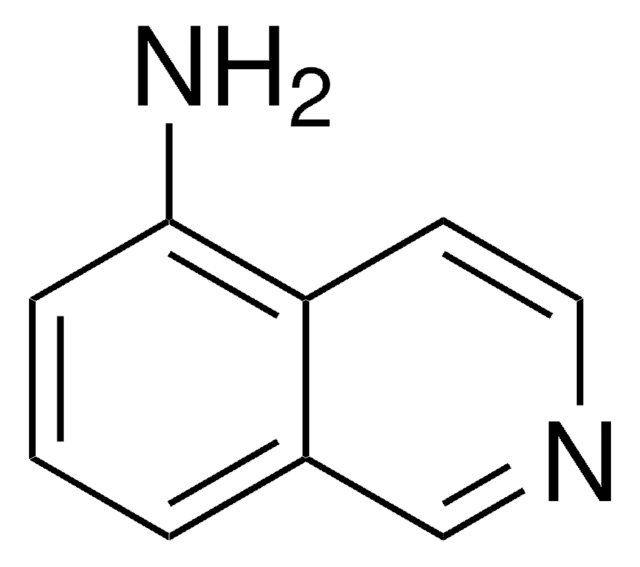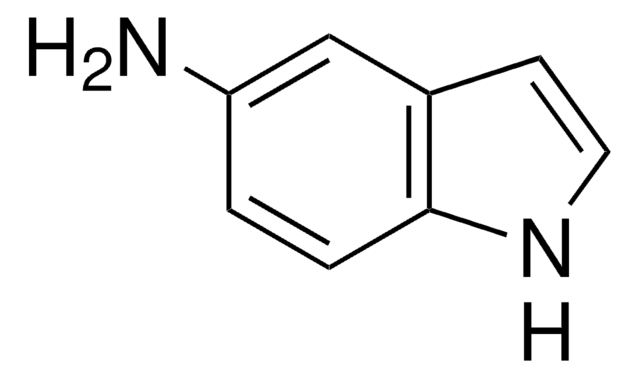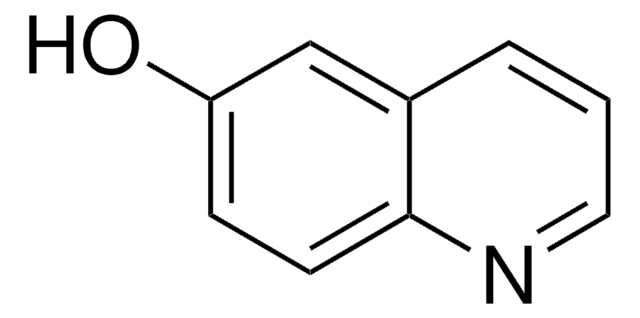232289
3-Aminoquinoline
98%
Synonym(s):
3-AQ, 3-Quinolinamine
Sign Into View Organizational & Contract Pricing
All Photos(1)
About This Item
Empirical Formula (Hill Notation):
C9H8N2
CAS Number:
Molecular Weight:
144.17
Beilstein:
113317
EC Number:
MDL number:
UNSPSC Code:
12352100
PubChem Substance ID:
NACRES:
NA.22
Recommended Products
Assay
98%
form
solid
mp
91-92 °C (lit.)
SMILES string
Nc1cnc2ccccc2c1
InChI
1S/C9H8N2/c10-8-5-7-3-1-2-4-9(7)11-6-8/h1-6H,10H2
InChI key
SVNCRRZKBNSMIV-UHFFFAOYSA-N
Looking for similar products? Visit Product Comparison Guide
Application
3-Aminoquinoline was used:
- in liquid matrix for matrix-assisted laser desorption/ionization mass spectrometry (MALDI-MS) for glycopeptides, carbohydrates and phosphopeptides
- in liquid matrix during novel glycan-labeling method for quantitative profiling of N-glycan by MALDI-MS analysis
- as derivatizing reagent for MALDI-MS analysis of oligosachharides
Signal Word
Warning
Hazard Statements
Precautionary Statements
Hazard Classifications
Eye Irrit. 2 - Skin Irrit. 2 - STOT SE 3
Target Organs
Respiratory system
Storage Class Code
11 - Combustible Solids
WGK
WGK 3
Personal Protective Equipment
dust mask type N95 (US), Eyeshields, Gloves
Certificates of Analysis (COA)
Search for Certificates of Analysis (COA) by entering the products Lot/Batch Number. Lot and Batch Numbers can be found on a product’s label following the words ‘Lot’ or ‘Batch’.
Already Own This Product?
Find documentation for the products that you have recently purchased in the Document Library.
Customers Also Viewed
Wei-Qian Cao et al.
Expert review of proteomics, 17(1), 11-25 (2020-01-10)
Introduction: Glycomics, which aims to define the glycome of a biological system to better assess the biological attributes of the glycans, has attracted increasing interest. However, the complexity and diversity of glycans present challenging barriers to glycome definition. Technological advances
Yuko Fukuyama et al.
Analytical chemistry, 86(4), 1937-1942 (2014-02-07)
Glycosylation and phosphorylation are important post-translational modifications in biological processes and biomarker research. The difficulty in analyzing these modifications is mainly their low abundance and dissociation of labile regions such as sialic acids or phosphate groups. One solution in matrix-assisted
Qiwei Zhang et al.
Mass spectrometry reviews, 37(5), 652-680 (2017-12-12)
Sialic acids are a family of structurally unique and negatively charged nine-carbon sugars, normally found at the terminal positions of glycan chains on glycoproteins and glycolipids. The glycosylation of proteins is a universal post-translational modification in eukaryotic species and regulates
Clara Granzotto et al.
Analytical chemistry, 89(5), 3059-3068 (2017-02-15)
This paper reports an improved method for the identification of Acacia gum in cultural heritage samples using matrix assisted laser desorption ionization-time-of-flight mass spectrometry (MALDI-TOF MS) after enzymatic digestion of the polysaccharide component. The analytical strategy was optimized using a
Yuzo Yamazaki et al.
Journal of the American Society for Mass Spectrometry, 31(6), 1180-1188 (2020-04-17)
Polyrotaxane (PR) is a necklace-like supramolecule composed of cyclic components, such as cyclodextrin (CD), and a threading polymer capped with bulky end groups. PR exhibits peculiar mechanical properties attributed to the intermolecular cross-links with CD. Various CD molecules threaded on
Our team of scientists has experience in all areas of research including Life Science, Material Science, Chemical Synthesis, Chromatography, Analytical and many others.
Contact Technical Service














